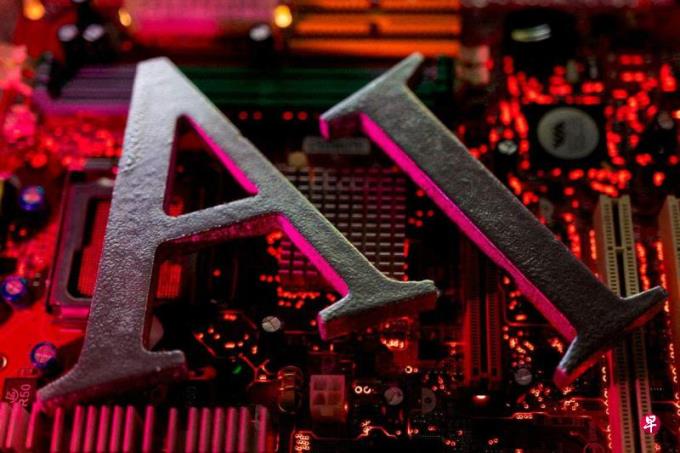
The inevitable conclusion is that it is not enough to regulate artificial intelligence.However, by introducing the concepts of new Ludeism and re -distribution into public debates, we can develop to reduce these emerging technologies to constitute the political and knowledge vocabulary required for threats.
More than a year ago, Openai, headquartered in San Francisco, released the chat robot ChatGPT, which caused artificial intelligence gold rush fever and re -ignited the ancient controversy on the impact of automation on human welfare.
The fear of being replaced by the machine can be traced back to the industrial revolution in the 19th century. At that time, a group of British hand -woven workers, known as the Lude molecules, destroyed the power weaving that threatened their livelihood.The campaign reached its peak between 1811 and 1817 and was eventually targeted by government forces. Leaders were executed or exiled in Australia.
But the argument of Lude found an unexpected (also ironic) supporter -famous economist David Ricardo.In the principles of political economics and taxation published in 1817, he pointed out: "The views that the labor class adheres to, that is, the use of machines often harm their interests, not based on prejudice and errors, but in line with political economicsThe principle of correctness.British economist Nassau Senior suggested that weaving workers "leave this production department".
The development of the situation is really the same: from 1820 to 1860, 250,000 hand -woven machines had disappeared.However, although mechanization ultimately benefits workers (the British population and actual income per capita increased in the same period), it has adversely affected the horses.As the train and later motor vehicles replaced carriage transportation, the number of horses declined sharply.
Since the Industrial Revolution, the mainstream argument of supporting machines is that automation can increase labor productivity, thereby increasing actual income, making more people enjoy a higher level of living, and will not cause unemployment accordingly.In addition, from the tedious tasks, we can transfer our energy to more valuable pursuits.
On the other hand, modern Lude emphasizes the disadvantages of automation, especially the "potential" of destroying life and communities.They believe that the equal distribution of income and power is essential for the long -term interests of technological progress.Technologists such as Martin Ford and Daniel SussKind believe that there are too few new employment opportunities created by emerging technologies like artificial intelligence, which will lead to poverty and technology unemployment.
The rise of the emergence of artificial intelligence and the arrival of general artificial intelligence (an artificial intelligence that can complete any cognitive task that humans can perform), exacerbate the debate between technical optimism and technical suspects.For example, in the field of medical care in science and technology speculation, artificial intelligence promises to improve diagnosis, promote remote medical care, bring more effective drugs, reduce the administrative burden of doctors and nurses, and free up more time to take care of patients.
This seems to reflect the universal view of mainstream experts, that is, the generation artificial intelligence will expand, rather than replacing human work.Through the daily task of automation, it is expected to liberate humanity and allow them to engage in more creative work.In all fairness, this change will require lifelong learning. Surgery education will not only become the condition for participating in the employment market, but also the condition for getting more and more online services.
With the emergence of generating artificial intelligence, people's concerns have changed from automation to unemployment, to the possibility of super intelligent hooliganization.This concern can be traced back to Mary Shelley (Frankenstein (or the Modern Prometheus) in 1818.Eric Schmidt, a former CEO of Google, has recently expressed the same view. He said that although the current artificial intelligence model is still "controlled by humans", there is indeed risks, that is, it may develop "recursive self -improvement"The ability to obtain autonomy and start "setting your own goals".He warned that "computer cluster" may eventually evolve into "real superhuman experts" who can act independently.
Experts and scholars are increasingly concerned about the ability of artificial intelligence to destroy the world. More and more voices call for the development of artificial intelligence to remain consistent with human goals and values.There are two ways to achieve this.The first is to limit the supply and sales of artificial intelligence products that may be harmful. Policy makers in Europe and other places try to implement this through strict supervision of emerging technologies such as autonomous vehicles and facial recognition to achieve this.
A clear problem of this method is that in a world of moral relativism is the norm, it is difficult to consensively reached a consensus.Because it is increasingly unclear who is considered to be harmful, it is almost impossible to hold the seller or provider's responsibility.In addition, the attempts for standardization of technology often come too late.
The second method of controlling artificial intelligence is to fully limit the development of potential dangerous products.However, inhibitory demand is more complicated than restricting supply, especially in modern society, the competitive power of business and geopolitics makes it extremely difficult to slow down technological innovation.
Openai's recent turmoil is a good example.In November last year, the company's board of directors briefly fired CEO Sam Altman, which is said to be worried that artificial intelligence may lead to human extinction one day.Although Aldman reinstated in a few days later, this scandal highlights the superior technology on the surface, and may suddenly become a risk of survival.Quick commercialization is obviously priority to be cautious. The development of increasingly competitive tools, and artificial intelligence has become more and more likely to cause catastrophe.
The inevitable conclusion is that it is not enough to regulate artificial intelligence.However, by introducing the concepts of new Ludeism and re -distribution into public debates, we can develop to reduce these emerging technologies to constitute the political and knowledge vocabulary required for threats.
For example, a new Lude may ask: Why is a wealthy society produced enough to make citizens live a comfortable life, but still focuses on maximizing the growth of GDP (GDP)?One answer may be that the lack of fair wealth and income distribution to ensure that the benefits of productivity and efficiency are widely shared.
Another explanation is that there is no good or bad in essence in technology. It is a means to achieve the purpose.In today's political economy, "technological innovation" is often a euphemistic statement. It allows the rich and the nobles to transfer capital from the industry to the financial field, so as to monopolize the benefits of automationDilemma.
Author Robert Skidelsky is a member of the House of Representatives and Honorary Professor of Political Economics at Winwei University
English Original Title: How to Prevent An AI Apocalypse
All rights reserved: Project syndicate, 2023.


